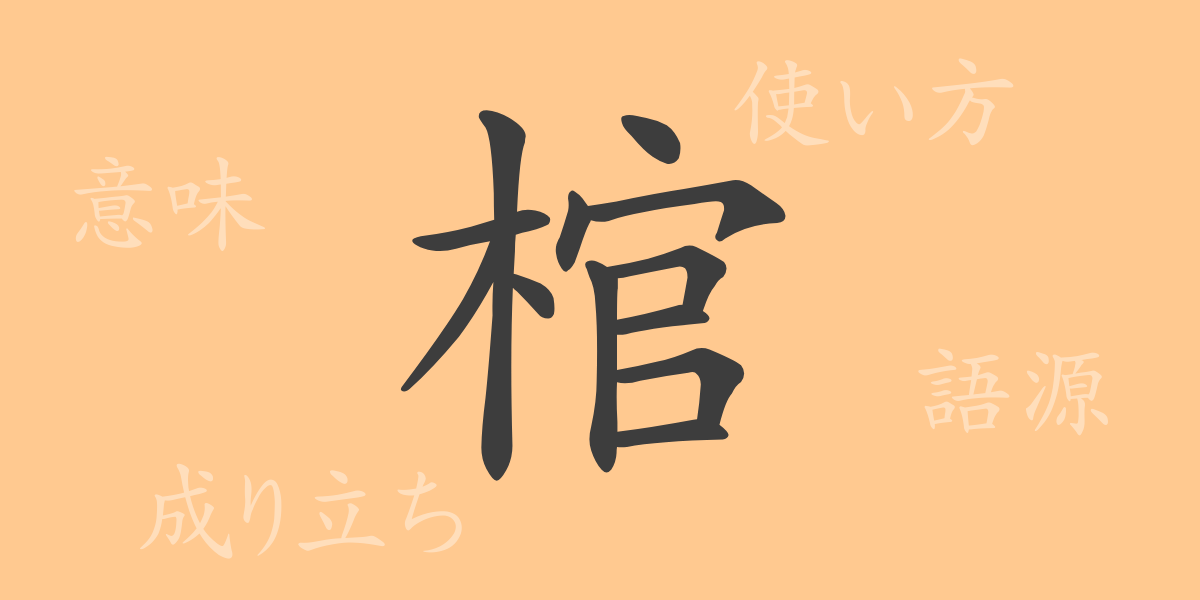The culture and language of Japan are steeped in a rich history of Kanji, characters with ancient origins. Among these, the Kanji “Kan” (棺) plays a deeply significant role in our lives, while also being considered somewhat taboo. However, this character is imbued with a rich history and meaning, and understanding its origins and usage can lead to a deeper appreciation of the complexities of the Japanese language. In this article, we will explore the commonly used Kanji “Kan” (棺), delving into its etymology, meaning, usage, and even related idioms and phrases.
Origins (Etymology) of Kan (棺)
The Kanji “Kan” (棺) is a character that originated in ancient China, with its etymology tracing back to the wooden coffins carved out in ancient times. The character is constructed with the “Wood” (木/Ki) radical and includes the structure of “To wrap” (包/Hou), representing a container made by assembling wood to shape a box for placing the deceased. Over time, the design of coffins has diversified, and correspondingly, the meanings of the Kanji have expanded.
Meaning and Usage of Kan (棺)
The Kanji “Kan” (棺) primarily refers to the coffin used for burying the deceased. This term is frequently used in the context of funerals and burials and is sometimes avoided due to its association with death. Nevertheless, its use also signifies respect and affection, playing a vital role in sending off the deceased on their final journey.
Reading, Stroke Count, and Radical of Kan (棺)
The Kanji “Kan” (棺) has unique readings and structures in the Japanese language.
- Reading: The on’yomi reading is “Kan” (かん), and there is no particular kun’yomi reading.
- Stroke Count: The Kanji “Kan” (棺) has a total of 14 strokes.
- Radical: It belongs to the “Wood” (木/Ki) radical, known as “Ki-hen” (きへん).
Idioms, Phrases, and Proverbs Using Kan (棺) and Their Meanings
Idioms and phrases containing “Kan” (棺) often suggest life’s end or profound lessons due to their strong imagery. For example, the expression “to have one foot in the coffin” (棺桶に片足を突っ込む/kanoke-ni-kataasi-wo-tukko-mu) is used to describe someone of a very old age or in a state close to death. Additionally, “a gourd on the coffin” (棺に瓢箪 – Hyoutan) is a phrase used to denote something that is utterly useless or serves no purpose.
Conclusion on Kan (棺)
The Kanji “Kan” (棺) is deeply rooted in the Japanese lexicon as a symbolic bridge between life and death. By understanding the character’s origins and its contemporary meanings and uses, we can touch upon the richness of Japanese expressions and culture. Through this Kanji, we are reminded of the preciousness of life and the reverence for death.

























